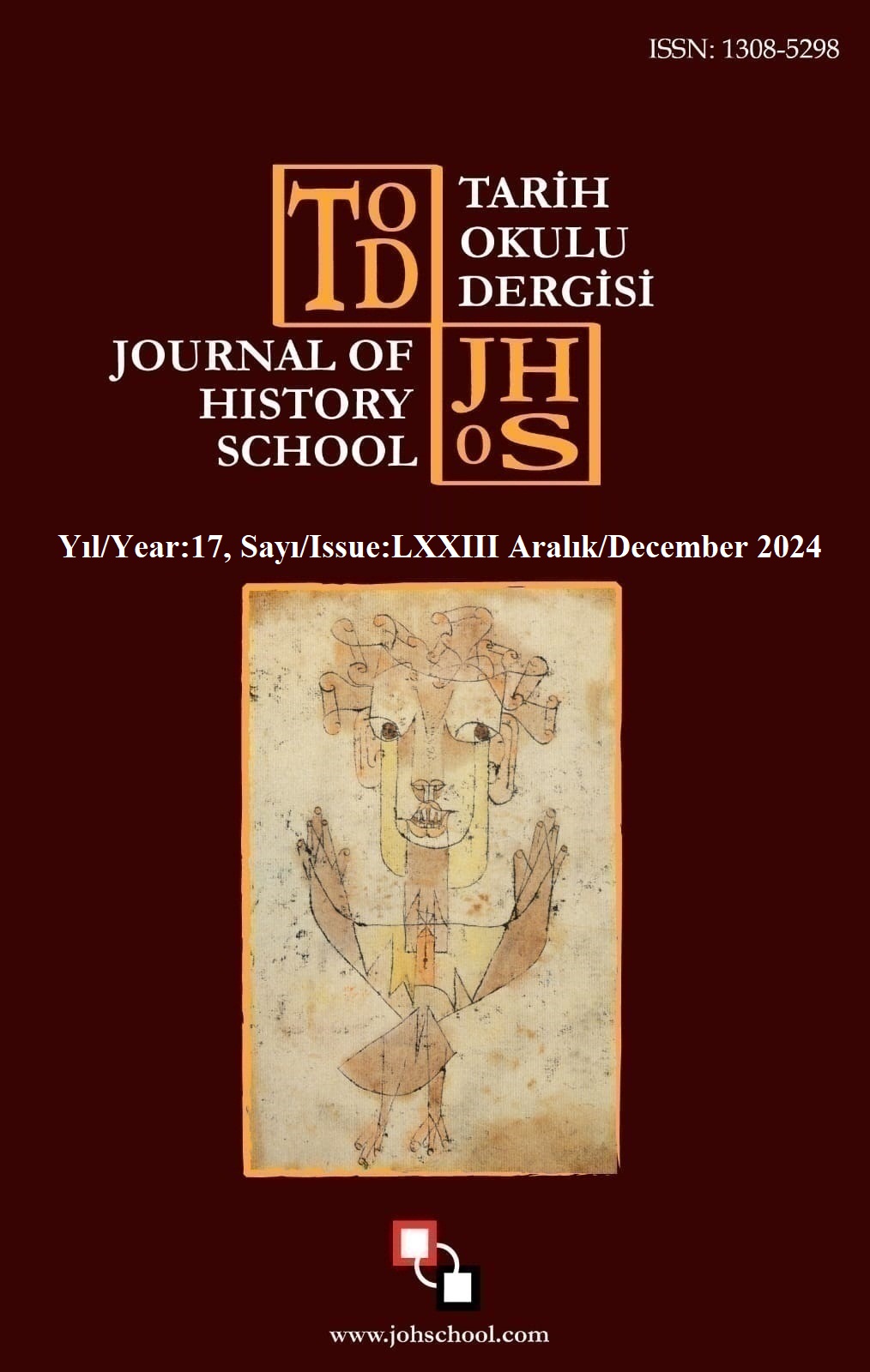Author :
Abstract
Bu çalışmanın amacı, Tanpınar’ın zihin dünyasını ve musiki kavrayışını, devir kuramı bağlamında değerlendirmektir. Bu amaca hizmet edecek en uygun örnek olarak, üç romandan oluşan nehir roman dizisi seçilmiş ve bu eserlerde yer alan ifadeler, devir kuramına ait olan kavramlar ile ilişkilendirilerek yorumlanmıştır. Bu bağlamda çalışmanın peşinden gittiği soru, “Tanpınar’ın zihin dünyasında musiki, devirsellik ile nasıl bir ilişki içindedir?” sorusudur. Çalışma, nitel araştırma yöntem ve teknikleriyle yürütülen ve içerik analizi çözümlemeleriyle gerçekleştirilen bir araştırmadır. Çalışmada nehir roman dizisinin seçilme nedeni, bu roman türünde yer alan eserlerin kendi içinde ve birbiri arasında sürekli bir döngüsellikle kurduğu irtibattır. Böylece bu tip romanların, nitelik itibarı ile birbiriyle sürekli irtibat içinde olması, devir kuramına bağlı olarak yapılacak çözümlemeler açısından önemli bir avantajdır. Bu çalışmada kullanılan Tanpınar’ın nehir roman dizisi, Mahur Beste, Sahnenin Dışındakiler ve Huzur romanları, devir kuramı ve musikiye dair söylem kesitleri bakımından analiz edilmiştir. Yapılan analizlerde bu kurama gönderme yapan ifadelerde, anlamsal bütünlüğe önem verilmiş ve ifadeler bu bütünü koruyacak şekilde seçilmiştir. Bu şekilde seçilen ifadeler, tematik kategorilere ayrılmış ve devir kuramının izleri, oluşan bu temalar üzerinden yorumlanmıştır. Sıklıkla vurgulanan temalar, analizlerde dikkate alınmakla birlikte, içerik analizlerinde belirli temaların ne sıklıkta ortaya çıktığının teşhis edilmesinde kullanılan nicel göndermeler, bu çalışmada tercih edilmemiştir. Sonuç olarak Tanpınar’ın zihin dünyasına çok büyük oranda hâkim olan devir kuramı en yoğun olarak sezgi, mazi, hafıza, yekpare zaman, döngüsel zaman kavramlarını, musiki üzerinden kurgulayan bir anlatı dili ile kendini göstermektedir
Keywords
Abstract
The aim of this study is to evaluate Tanpınar's mental world and understanding of music in the context of cycle theory. As the most suitable example to serve this purpose, a trilogy of river novels has been selected, and the expressions in these works have been interpreted by associating them with the concepts of cycle theory. In this context, the question that the study pursues is: "In Tanpınar’s word of mind, how music relates to cyclicality?" The study is conducted using qualitative research methods and content analysis techniques. The reason for the selection of the river novel series in this study is that the works in this genre establish a continuous cycle both within themselves and among each other, which is an important advantage for analyses based on cycle theory. In this study, Tanpınar's series of river novels, Mahur Beste, Sahnenin Dışındakiler and Huzur novels are analyzed in terms of the theory of the cycle and discourse segments on music. In the analyses, emphasis has been placed on semantic integrity in the expressions referring to this theory, and the expressions have been selected to preserve this integrity. Thus selected expressions have been categorized into thematic categories, and the traces of period theory have been interpreted through these themes. While the frequently emphasized themes are taken into account in the analyses, quantitative references, which are used to diagnose how often specific themes emerge in content analyses, have not been preferred in this study. In conclusion, the theory of cycles, which dominates Tanpınar’s mental world to a great extent, manifests itself most intensely in a narrative language that constructs the concepts of intuition, past, memory, monolithic time, cyclical time through music.





